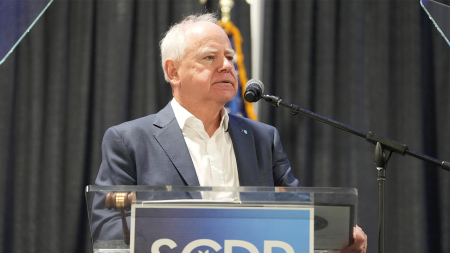The House Republican majority is claiming significant victories within the newly released National Defense Authorization Act (NDAA) for Fiscal Year 2025, a sprawling $895.2 billion bill that dictates defense spending and policy. A 16-page memo circulated by House Republicans highlights what they consider key achievements in the bipartisan negotiations, focusing heavily on rolling back what they term “woke ideology” within the military, strengthening border security, and maintaining a focus on confronting geopolitical adversaries like China and Iran. While the NDAA traditionally enjoys broad bipartisan support, certain provisions, particularly those restricting transgender healthcare for children of service members, are generating controversy and threatening to fracture the usual consensus.
A central theme of the Republican memo is the curtailment of Diversity, Equity, and Inclusion (DEI) initiatives within the Department of Defense. The NDAA extends a hiring freeze on DEI-related positions and mandates a comprehensive review of existing DEI programs before any further recruitment can occur. Republicans view this as a crucial step in reorienting the military’s focus towards combat readiness and away from what they perceive as ideologically driven distractions. Additionally, the memo highlights a ban on contracting with advertising companies that “blacklist conservative news sources,” a move framed as protecting free speech and preventing bias in military outreach. The bill also eliminates funding for the Biden administration’s “Countering Extremist Activity Working Group,” which Republicans criticize for its approach to addressing extremism within the military ranks.
Beyond DEI, the NDAA reflects other Republican priorities. It prohibits the implementation of climate change-related programs and guidelines within the Pentagon, rejecting the consideration of climate impacts in weapons systems development. On border security, a key Republican concern, the bill authorizes the deployment of National Guard troops to support Border Patrol operations at the southwest border. These provisions align with the party’s focus on traditional security threats and a skepticism towards climate-related initiatives.
While emphasizing a conservative agenda, the NDAA also addresses quality-of-life improvements for military personnel, an area with broad bipartisan support. The bill includes a substantial 14.5% pay raise for junior enlisted troops, expands access to childcare for service members, and provides job support for military spouses. These measures aim to enhance recruitment and retention within the armed forces by addressing the financial and family-related challenges faced by service members. Republicans underscore that the overall $895 billion spending represents only a modest 1% increase over the previous fiscal year, emphasizing fiscal responsibility.
The memo provides insight into the Republican Party’s national security priorities as they assume control of all branches of government in Washington following the 2024 elections. While much of the NDAA’s content, particularly measures aimed at countering China and Iran, is expected to garner bipartisan support, certain provisions, most notably those related to transgender healthcare, have ignited partisan tensions. The bill prohibits funding for transgender medical treatments for children of service members, a decision that Democratic lawmakers have criticized as discriminatory and politically motivated.
This specific provision has emerged as a significant point of contention, potentially jeopardizing the broad bipartisan support typically enjoyed by the NDAA. Representative Adam Smith, the ranking Democrat on the House Armed Services Committee, has expressed reservations about supporting the bill due to the inclusion of what he views as partisan wedge issues like the restrictions on transgender healthcare. Speaker Mike Johnson, on the other hand, has praised the limitations on progressive policies within the NDAA, highlighting them as essential for restoring focus on military readiness and countering perceived threats from adversaries. The future of the NDAA and its passage through Congress now hinges on whether these partisan divisions can be bridged. A vote is expected this week, and the outcome will reveal the extent to which these contentious issues will shape the future of national defense policy.










